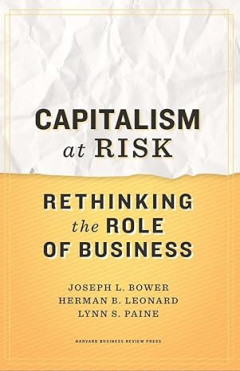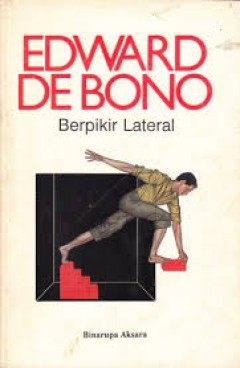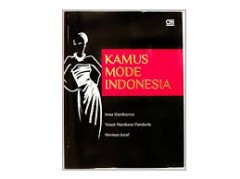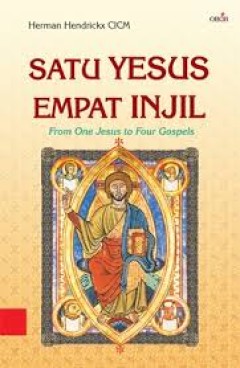Ditapis dengan

E-book Educational Agency and Activism in Linguistic Landscape Studies
Who is involved and why in the linguistic landscapes in educational contexts? How are agency and activism reflected in educationscapes? These questions and more are addressed in the various contributions in this volume, thus expanding the boundaries of educationscapes through enquiries that focus on educational agency and activism. In particular, the collection sheds light on linguistic, semiot…
- Edisi
- -
- ISBN/ISSN
- 9783631901878
- Deskripsi Fisik
- 356 halaman
- Judul Seri
- -
- No. Panggil
- 306.44 GOR e

E-book A Dark Trace : Sigmund Freud on the Sense of Guilt
“Psychoanalysis has never claimed to provide a complete theory of human mentality in general.”1 Freud wrote these words in 1914, shortly after his break with Jung. It is indeed true that he never concerned himself with developing an all-embracing system, but rather moved from the analysis of patients to areas of special attention: repression, dreams,…
- Edisi
- -
- ISBN/ISSN
- 9789461664174
- Deskripsi Fisik
- 333 hlm
- Judul Seri
- -
- No. Panggil
- 150.195 WES a

E-book Capitalism at Risk: Rethinking the Role of Business
The spread of capitalism worldwide has made people wealthier than ever before. But capitalism’s future is far from assured. The global financial meltdown of 2008 nearly produced a great depression. Economies in Europe are still teetering. Income inequality, resource depletion, mass migrations from poor to rich countries, religious fundamentalism?these are just a few of the threats to continui…
- Edisi
- -
- ISBN/ISSN
- -
- Deskripsi Fisik
- 265 halaman
- Judul Seri
- -
- No. Panggil
- 330.112 BOW c

E-Book Dogmatism: On the History of a Scholarly Vice
Why does the history of dogmatism deserve our attention? This open access book analyses uses of the term, following dogmatism from Victorian Britain to Cold War America, examining why it came to be regarded as a vice, and how understandings of its meaning have evolved. Whilst the field of scientific thought is committed to continuous innovation, ideas about dogmatism – with their roots in anc…
- Edisi
- -
- ISBN/ISSN
- 9781350399570
- Deskripsi Fisik
- 115 halaman
- Judul Seri
- -
- No. Panggil
- 901 PAU d
E-book Making AI Intelligible : Philosophical Foundations
Thus we are not going to talk about the consequences that the new wave in AI might have for the empiricism/rationalism debate (see Buckner 2018), nor are we going to consider—much—the question of whether it is reasonable to say that what these programs do is ‘learning’ in anything like the sense with which we are familiar (Buckner 2019, 4.2), and we’ll pass over interestin…
- Edisi
- -
- ISBN/ISSN
- 9780192894724
- Deskripsi Fisik
- 184 hlm
- Judul Seri
- -
- No. Panggil
- 006.3 CAP m
E-book Poems of 1890 : A Selection
In the same year he published his first Dutch poetry in the influential magazine De nieuwe gids (The New Guide). The journal, founded in 1885, was dominated at this period by the poet Willem Kloos (1859–1938), who used its pages to proclaim a radical aestheticism and advocate literature that was both non-sectarian and non-utilitarian. Poetry, Kloos famously asserted, was ‘the supremely indi…
- Edisi
- -
- ISBN/ISSN
- 978-1-910634-12-7
- Deskripsi Fisik
- 99 hlm
- Judul Seri
- -
- No. Panggil
- 821 GOR p

Kamus fisika : Mekanika
- Edisi
- Cet. 3
- ISBN/ISSN
- 979 454 015 0
- Deskripsi Fisik
- viii, 165 hlm. ;14x21 cm.
- Judul Seri
- -
- No. Panggil
- R 530.03 LIE k
- Edisi
- Cet. 3
- ISBN/ISSN
- 979 454 015 0
- Deskripsi Fisik
- viii, 165 hlm. ;14x21 cm.
- Judul Seri
- -
- No. Panggil
- R 530.03 LIE k

Kamus fisika : Fisika modern.
- Edisi
- Cet. 3
- ISBN/ISSN
- 979-459-010-X
- Deskripsi Fisik
- viii+168 hlm. ;17x21 cm.
- Judul Seri
- -
- No. Panggil
- R 530.03 LIE k
- Edisi
- Cet. 3
- ISBN/ISSN
- 979-459-010-X
- Deskripsi Fisik
- viii+168 hlm. ;17x21 cm.
- Judul Seri
- -
- No. Panggil
- R 530.03 LIE k

Berpikir lateral = Lateral Thinking
Dalam buku “Berpikir Lateral” oleh : Edward de Bono, berpikir lateral adalah cara berpikir yang berusaha mencari solusi untuk masalah terselesaikan melalui metode yang tidak umum, atau sebuah cara yang biasanya akan diabaikan oleh pemikiran Edward De Bono membedakan cara berpikir ini dari berpikir vertikal. Berpikir vertikal adalah cara berpikir yang tradisional atau logis. Berpikir verti…
- Edisi
- cet. 3
- ISBN/ISSN
- 09-01-012-5
- Deskripsi Fisik
- 296 hlm.; illus. 11 x 18 cm
- Judul Seri
- -
- No. Panggil
- 153 BON b

Kamus mode Indonesia
Mode bukan sekadar urusan gaya atau busana semata Mode adalah bisnis... Mode adalah industri Kamus Mode Indonesia merupakan buku referensi yang memuat lebih dari 1600 istilah mode berikut arti, definisi, maupun deskripsinya yang disusun secara alfabetik. Beberapa di antaranya dilengkapi ilustrasi. Isinya terbagi atas: Entri - memuat antara lain: - Istilah/deskripsi tentang serat, bahan/tek…
- Edisi
- cet. 1
- ISBN/ISSN
- 9789792277140
- Deskripsi Fisik
- 300 hlm.; illus. 18 x 24 cm
- Judul Seri
- -
- No. Panggil
- 688.203 HAR k

Satu Yesus empat Injil = From one Jesus to four Gospels
Banyak orang mengaku diri seabagai pengikut Yesus, allah yang menyejarahdan terlibat aktif dalam sejarah umat manusia. Namun, pengetahuan dan pengenalan yang mendalam tentang siapa Dia itu sesungguhnya masih tetap merupakan suatu permasalahan iman yang serius dan aktual. Buku Satu Yesus Empat Injil ini untuk membantu umat beriman Kristiani agar semakin mengenal dan mencintai keempat Injil yang…
- Edisi
- cet. 2
- ISBN/ISSN
- 9789795657583
- Deskripsi Fisik
- xiii + 216 hlm. 14 x 21 cm
- Judul Seri
- -
- No. Panggil
- 232.9 HEN s

READING PEOPLE: Cara Efektif unutk Menggerakkan Orang Serta Mengatasi dan Men…
- Edisi
- cet. 1
- ISBN/ISSN
- 979-20-9885-2
- Deskripsi Fisik
- vii; 164 hlm;10,5 x 17,5 cm
- Judul Seri
- -
- No. Panggil
- 658 HER r
- Edisi
- cet. 1
- ISBN/ISSN
- 979-20-9885-2
- Deskripsi Fisik
- vii; 164 hlm;10,5 x 17,5 cm
- Judul Seri
- -
- No. Panggil
- 658 HER r

TEORI DAN APRESIASI PUISI
- Edisi
- cet. 1
- ISBN/ISSN
- 55-02-013-5
- Deskripsi Fisik
- xiv; 341 hlm;15 x 23 cm
- Judul Seri
- -
- No. Panggil
- 802 WAL t
- Edisi
- cet. 1
- ISBN/ISSN
- 55-02-013-5
- Deskripsi Fisik
- xiv; 341 hlm;15 x 23 cm
- Judul Seri
- -
- No. Panggil
- 802 WAL t
 Karya Umum
Karya Umum  Filsafat
Filsafat  Agama
Agama  Ilmu-ilmu Sosial
Ilmu-ilmu Sosial  Bahasa
Bahasa  Ilmu-ilmu Murni
Ilmu-ilmu Murni  Ilmu-ilmu Terapan
Ilmu-ilmu Terapan  Kesenian, Hiburan, dan Olahraga
Kesenian, Hiburan, dan Olahraga  Kesusastraan
Kesusastraan  Geografi dan Sejarah
Geografi dan Sejarah